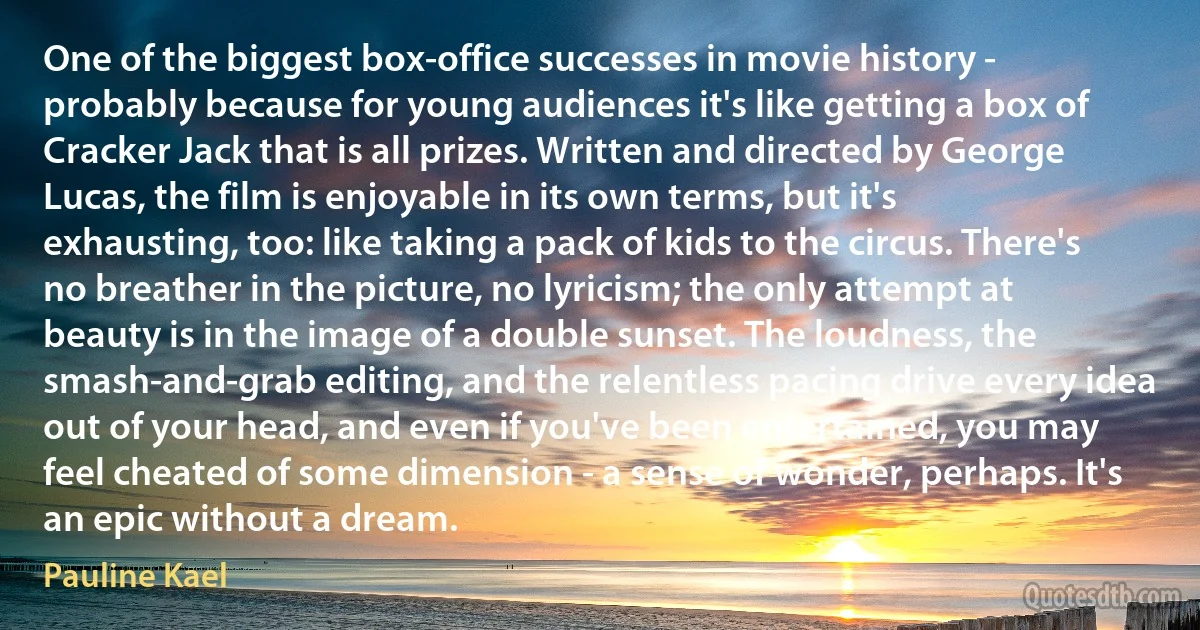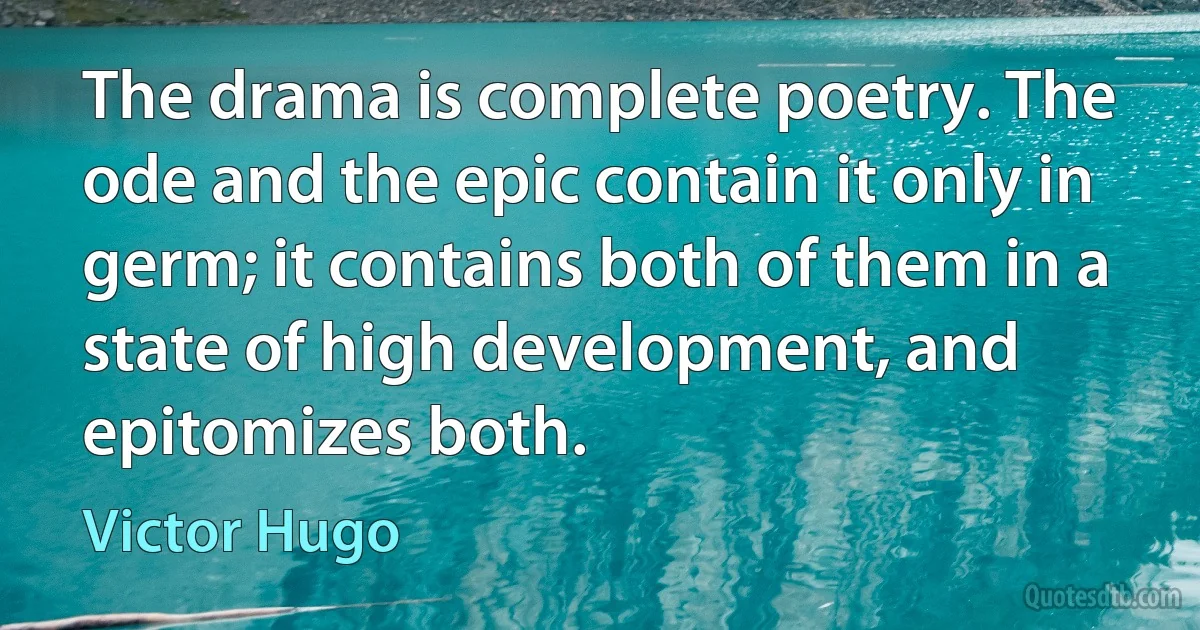Epic Quotes - page 4
Writing stories was not easy. When they were turned into words, projects withered on the paper and ideas and images failed. How to reanimate them? Fortunately, the masters were there, teachers to learn from and examples to follow. Flaubert taught me that talent is unyielding discipline and long patience. Faulkner, that form – writing and structure – elevates or impoverishes subjects. Martorell, Cervantes, Dickens, Balzac, Tolstoy, Conrad, Thomas Mann, that scope and ambition are as important in a novel as stylistic dexterity and narrative strategy. Sartre, that words are acts, that a novel, a play, or an essay, engaged with the present moment and better options, can change the course of history. Camus and Orwell, that a literature stripped of morality is inhuman, and Malraux that heroism and the epic are as possible in the present as is the time of the Argonauts, the Odyssey, and the Iliad.

Mario Vargas Llosa
This tendency, however, to ascribe an universality of genius to great men, led Dryden to affirm, on the strength of two smart satyrical lines, that Virgil could have written a satire equal to Juvenal. But, with all due deference to Dryden, I conceive it much more manifest, that Juvenal could have written a better epic than Virgil, than that Virgil could have written a satire equal to Juvenal. Juvenal has many passages of the moral sublime far superior to any that can be found in Virgil, who, indeed, seldom attempts a higher flight than the sublime of description. Had Lucan lived, he might have rivalled them both, as he has all the vigour of the one, and time might have furnished him with the taste and elegance of the other.

Charles Caleb Colton
The condemned man found himself transformed into a hero by the sheer extend of his widely advertised crimes, and sometimes the affirmation of his belated repentance. Against the law, against the rich, the powerful, the magistrates, the constabulary or the watch, against taxes and their collectors, he appeared to have waged a struggle with which one all too easily identified. The proclamation of these crimes blew up to epic proportions the tiny struggle that passed unperceived in everyday life. If the condemned man was shown to be repentant, accepting the verdict, asking both God and man for forgiveness for his crimes, it was as if he had come through some process of purification: he died, in his own way, like a saint.

Michel Foucault
As the glossaries lengthen, as the footnotes become more elementary and didactic, the poem, the epic, the drama, move out of balance on the actual page. As even the more rudimentary of mythological, religious or historical references, which form the grammar of Western literature, have to be elucidated, the lines of Spenser, of Pope, of Shelley or of Sweeney Among the Nightingales, blur away from immediacy. Where it is necessary to annotate every proper name and classical allusion in the dialogue between Jessica and Lorenzo in the garden at Belmont, or in Iachimo's stealthy rhetoric when he emerges in Imogen's bedchamber, these marvellous spontaneities of enacted feeling become "literary" and twice-removed.

George Steiner
Human labor, through all its forms, from the sharpening of a stake to the construction of a city or an epic, is one immense illustration of the perfect compensation of the universe. The absolute balance of Give and Take, the doctrine that every thing has its price, - and if that price is not paid, not that thing but something else is obtained, and that it is impossible to get any thing without its price, - is not less sublime in the columns of a leger than in the budgets of states, in the laws of light and darkness, in all the action and reaction of nature. I cannot doubt that the high laws which each man sees implicated in those processes with which he is conversant, the stern ethics which sparkle on his chisel-edge, which are measured out by his plumb and foot-rule, which stand as manifest in the footing of the shop-bill as in the history of a state, - do recommend to him his trade, and though seldom named, exalt his business to his imagination.

Ralph Waldo Emerson
Sarojini Naidu : Kingly was Deshbandhu Das in every impulse and gesture of his life, royal alike in the splendour of his bounty and the splendour of his renunciation. As the idol of the nation he served with unsurpassing devotion. To the generations of tomorrow, he will grow into a radiant figure of historic legend and romance, a vital portion of epic beauty and grandeur of their spiritual heritage.

Chittaranjan Das
Thus was born the civil rights movement, an epic struggle that has required much sacrifice and pain, but which has enabled the United States to progress, in just three decades, from being a nation where blacks were forced to ride in the back of the bus, to being a nation where, due to federal cutbacks, there is no bus.

Dave Barry



